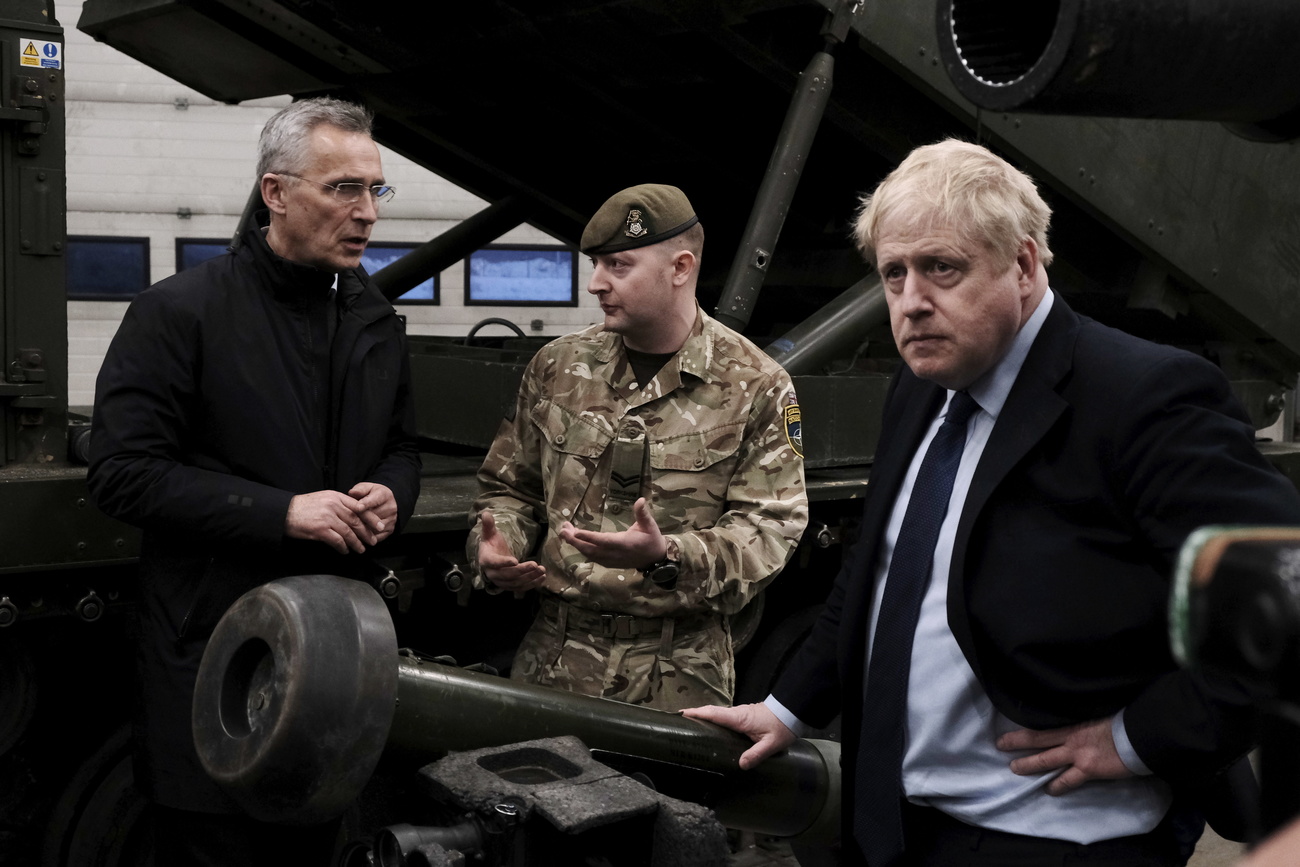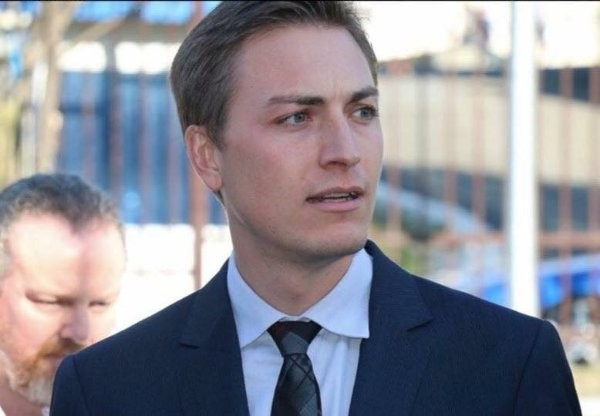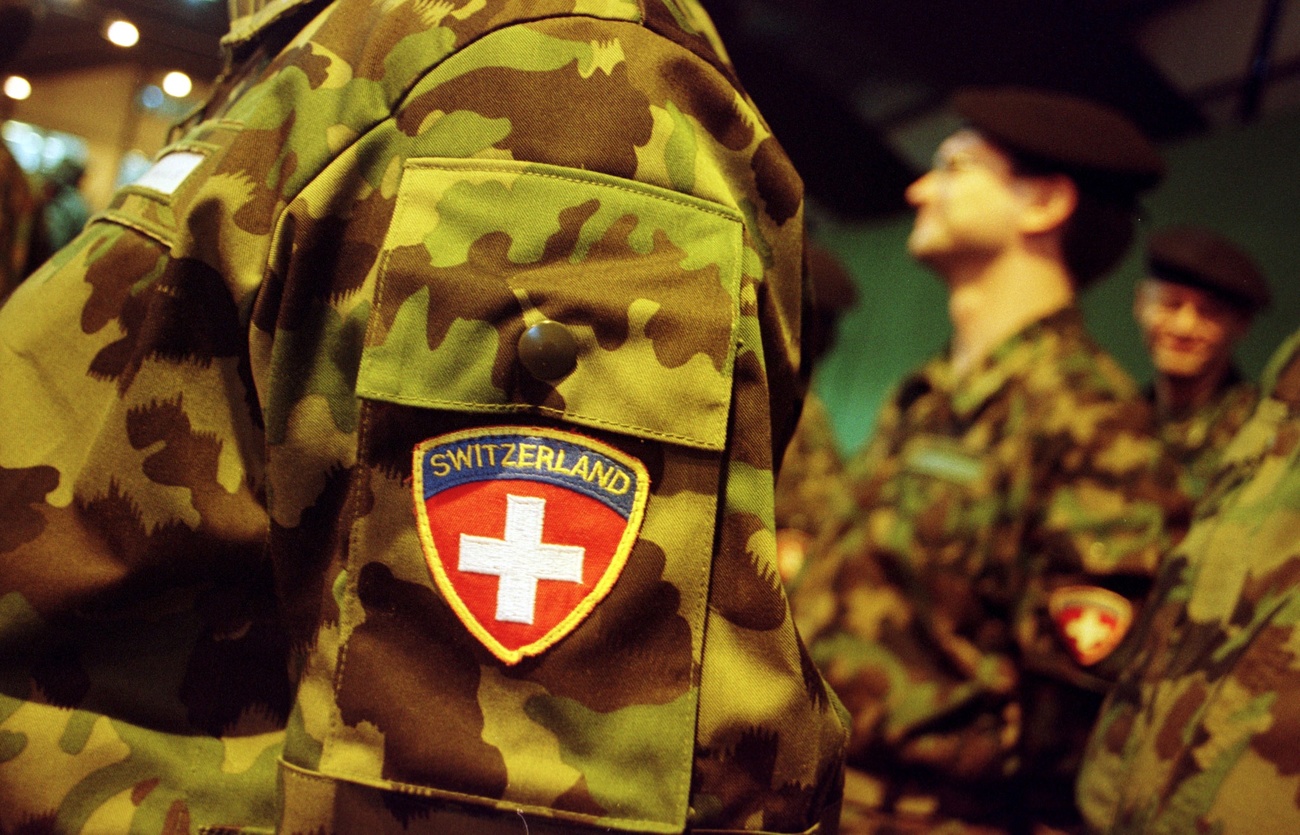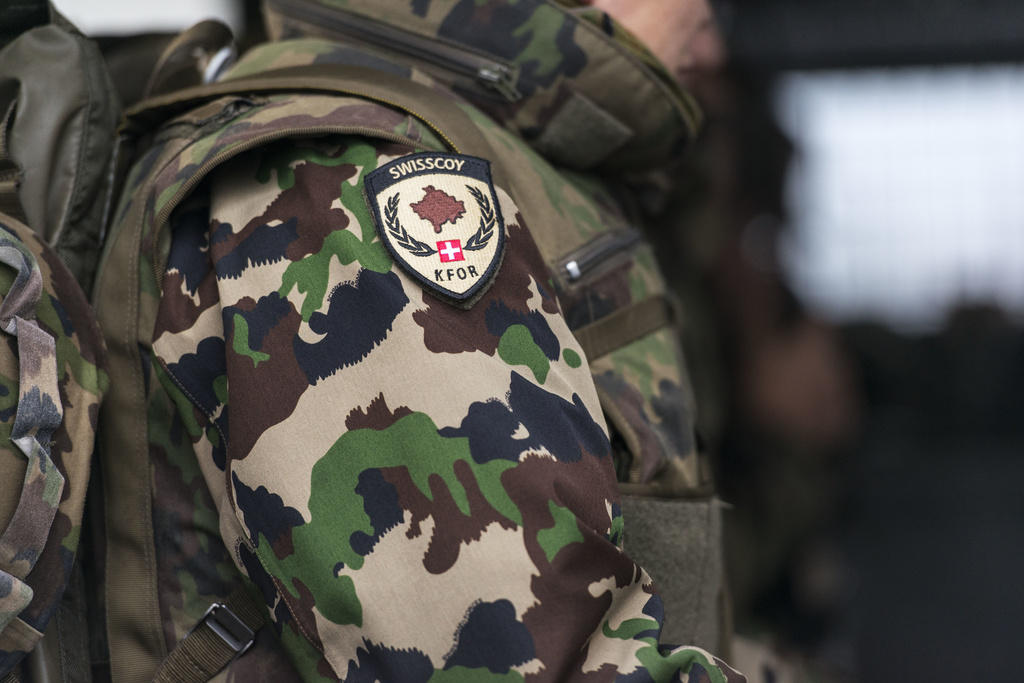
‘The Euro-Atlantic security architecture is completely ruined’

Switzerland is not a member of defence alliance NATO, but it has moved closer to international security partnerships in recent decades. In an interview, an international security expert explains why – and how the war in Ukraine is turning the security order upside down.
Switzerland is one of the few countries between the Atlantic and Ukraine that belongs to neither the European Union nor NATO (the North Atlantic Treaty Organization). As a NATO partner country, it is involved only in the Partnership for Peace programmeExternal link. Swiss armed forces can participate in peace support operations abroad under the leadership of NATO, the EU or the United Nations.
Henrik LarsenExternal link conducts research on NATO and transatlantic security at the Center for Security Studies (CSS) at the federal technology institute ETH Zurich.

SWI: The Swiss government has decided to go along with the international sanctions against Russia. Did that surprise you?
Henrik Larsen: No. What would the alternative have been? To be the only Western country not to impose sanctions? That would have looked more like Switzerland agreeing with Russia’s behaviour. Switzerland is economically and culturally integrated in Europe. What’s more, Switzerland is committed to peaceful relations and can’t simply stand by when a country breaks international laws and norms so blatantly.
SWI: Let’s look back at Switzerland’s security policy. Switzerland isn’t a member of NATO but has been involved in NATO’s Partnership for Peace since 1996. Why?
H.L.: In the context of the end of the Cold War, Switzerland wanted to maintain its neutral status but contribute to peacekeeping as well as to the development of an all-encompassing security architecture – especially in terms of soft security. Switzerland sees the partnership with NATO as a tool for the implementation of international legal norms. Switzerland has always been reluctant to provide operational support.

SWI: How has the relationship between NATO and Switzerland changed since then?
H.L.: The 1990s was a golden period. Within the Partnership for Peace, Switzerland was able to stand up for its values: peacekeeping, international rights. With the Russian occupation of part of Georgia in 2008 and the subsequent war in Afghanistan, NATO began to focus on territorial defence. This made it difficult for Switzerland, because participating in NATO missions meant participating in the killing of people. As a neutral country, Switzerland didn’t want that. The annexation of Crimea by Russia in 2014 once again reduced the importance of the NATO-Switzerland partnership.
SWI: You say it’s time for Switzerland to move closer to NATO again. Why?
H.L.: After the annexation of Crimea, the situation in Europe calmed down again. NATO was at a different point: the presence in Eastern Europe had been strengthened, and now soft issues such as cybersecurity, new technologies and the protection of infrastructure became topical. NATO was also open to partners who didn’t want to combine these issues with collective defence. NATO would have liked more support from Switzerland, especially on cybersecurity. So based on its values and the economic and social interdependencies within Western countries, it made sense for Switzerland to approach NATO again to explore other areas of practical cooperation.

More
Switzerland and NATO: engaged but not married
SWI: Is the war in Ukraine changing the global security order?
H.L.: The Euro-Atlantic security architecture is completely ruined. The balance of power is broken. Western states can no longer trust Russia after all the lies and manipulations that led to the war in Ukraine. What a new security order will look like is anyone’s guess.
SWI: How do you see European security policy in the longer term?
H.L.: Most countries are now likely to re-arm or at least increase their defence budgets. Germany has already announced this. This means a fundamental change in their strategy which hasn’t happened since the Cold War.
More

In compliance with the JTI standards
More: SWI swissinfo.ch certified by the Journalism Trust Initiative


























You can find an overview of ongoing debates with our journalists here . Please join us!
If you want to start a conversation about a topic raised in this article or want to report factual errors, email us at english@swissinfo.ch.